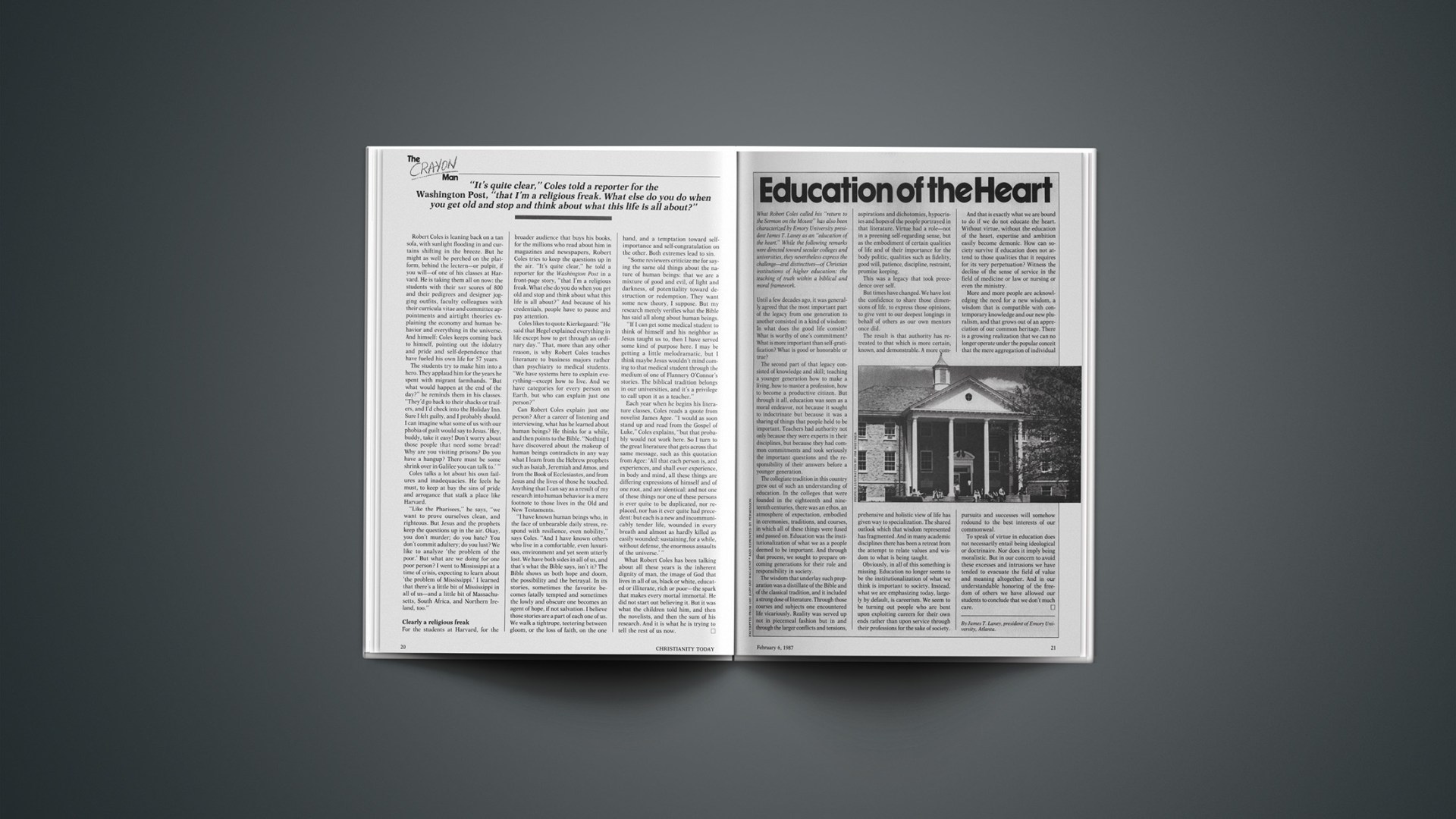Until a few decades ago, it was generally agreed that the most important part of the legacy from one generation to another consisted in a kind of wisdom: In what does the good life consist? What is worthy of one’s commitment? What is more important than self-gratification? What is good or honorable or true?
The second part of that legacy consisted of knowledge and skill; teaching a younger generation how to make a living, how to master a profession, how to become a productive citizen. But through it all, education was seen as a moral endeavor, not because it sought to indoctrinate but because it was a sharing of things that people held to be important. Teachers had authority not only because they were experts in their disciplines, but because they had common commitments and took seriously the important questions and the responsibility of their answers before a younger generation.
The collegiate tradition in this country grew out of such an understanding of education. In the colleges that were founded in the eighteenth and nineteenth centuries, there was an ethos, an atmosphere of expectation, embodied in ceremonies, traditions, and courses, in which all of these things were fused and passed on. Education was the institutionalization of what we as a people deemed to be important. And through that process, we sought to prepare oncoming generations for their role and responsibility in society.
The wisdom that underlay such preparation was a distillate of the Bible and of the classical tradition, and it included a strong dose of literature. Through those courses and subjects one encountered life vicariously. Reality was served up not in piecemeal fashion but in and through the larger conflicts and tensions, aspirations and dichotomies, hypocrisies and hopes of the people portrayed in that literature. Virtue had a role—not in a preening self-regarding sense, but as the embodiment of certain qualities of life and of their importance for the body politic, qualities such as fidelity, good will, patience, discipline, restraint, promise keeping.
This was a legacy that took precedence over self.
But times have changed. We have lost the confidence to share those dimensions of life, to express those opinions, to give vent to our deepest longings in behalf of others as our own mentors once did.
The result is that authority has retreated to that which is more certain, known, and demonstrable. A more comprehensive and holistic view of life has given way to specialization. The shared outlook which that wisdom represented has fragmented. And in many academic disciplines there has been a retreat from the attempt to relate values and wisdom to what is being taught.
Obviously, in all of this something is missing. Education no longer seems to be the institutionalization of what we think is important to society. Instead, what we are emphasizing today, largely by default, is careerism. We seem to be turning out people who are bent upon exploiting careers for their own ends rather than upon service through their professions for the sake of society.
And that is exactly what we are bound to do if we do not educate the heart. Without virtue, without the education of the heart, expertise and ambition easily become demonic. How can society survive if education does not attend to those qualities that it requires for its very perpetuation? Witness the decline of the sense of service in the field of medicine or law or nursing or even the ministry.
More and more people are acknowledging the need for a new wisdom, a wisdom that is compatible with contemporary knowledge and our new pluralism, and that grows out of an appreciation of our common heritage. There is a growing realization that we can no longer operate under the popular conceit that the mere aggregation of individual pursuits and successes will somehow redound to the best interests of our commonweal.
To speak of virtue in education does not necessarily entail being ideological or doctrinaire. Nor does it imply being moralistic. But in our concern to avoid these excesses and intrusions we have tended to evacuate the field of value and meaning altogether. And in our understandable honoring of the freedom of others we have allowed our students to conclude that we don’t much care.
By James T. Laney, president of Emory University, Atlanta.










